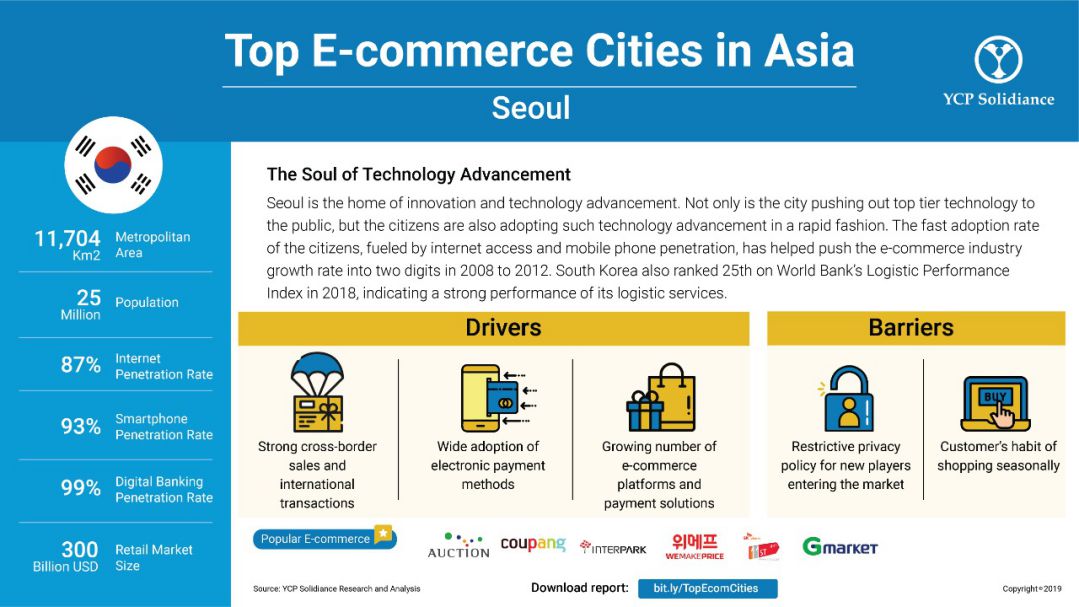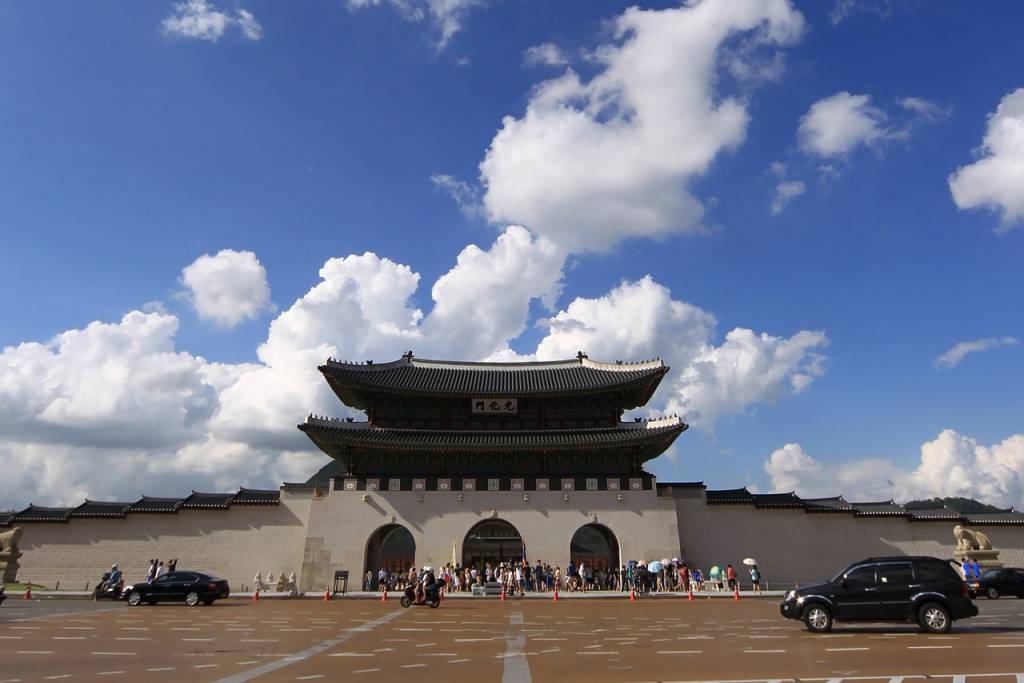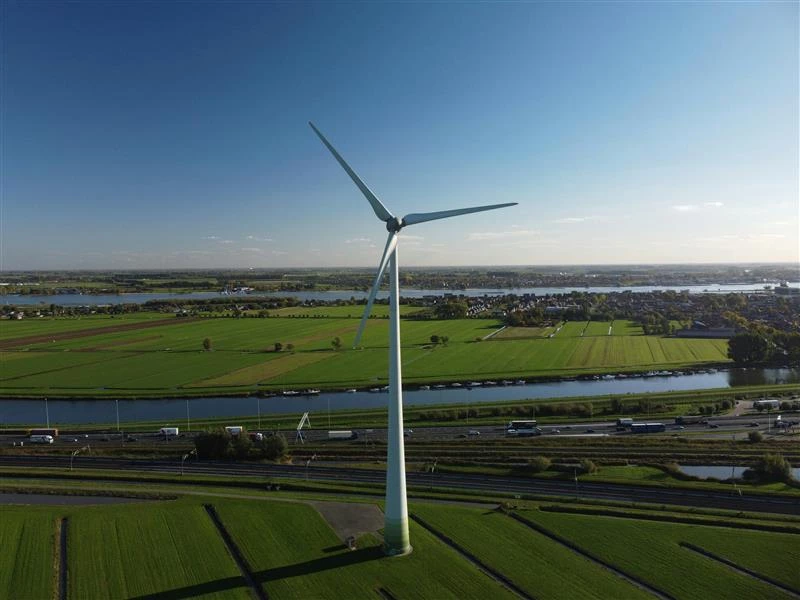As the third biggest e-commerce market in Asia, Seoul is a booming marketplace which presents excellent opportunities for the investor to access sophisticated and mobile-savvy consumer. South Korea has now positioned itself on top of the richest country in the world, with Seoul as the home of innovation and technology advancement. Not only that the city is fast in pushing out top tier technology to the public, but the citizens are also adopting such technology advancement in a rapid fashion. Such phenomenon brings opportunity for emerging industries like e-commerce to develop at a faster pace in the city.
Seoul is among the top e-commerce cities in Asia, along with other cities, such as Jakarta, Bangkok, Shanghai, and many more, based on our latest report, Top E-commerce Cities in Asia. The report highlights the Asia's e-commerce landscape and how it has quickly adapted to global trends. An "e-commerce city" here is defined as an urban city with interconnected infrastructure, making up an e-commerce ecosystem that helps it thrive.

Seoul boasts one of the fastest internet speeds in the world and has a mobile penetration rate of 97% and 40.6 million smartphone users. Along with an extremely high social media usage, this trend drives the growth in Seoul's e-commerce. Moreover, new e-commerce platforms and payment solutions are also making it easier to engage in Seoul e-commerce market.
Seoul's e-commerce industry contribution to the overall retail industry is notably high relative to the world average. South Korea also place 25th on World Bank's Logistic Performance Index (LPI) in 2018), indicating a strong performance of its logistic service. In addition, the South Korean Government has been supporting cross-border online trade, setting up requirements to better nurture e-commerce growth. As consumer discovered that some products overseas are cheaper compared to locally produced products, Seoul is witnessing a strong cross-border commerce numbers,
However, Seoul still scores poorly on entry barrier due to its government intervention and customer behavior. Seoul's government intervention is relatively high for the e-commerce industry in South Korea, as shown by strengthened privacy policy by restricting international players to manage South Korea's user database. While from the consumer behavior perspective, there's a potential sales drop during no sale event, due to the customer behavior that always looking for the best deals.
With an astonishing USD 2.86 trillion in 2018 and are projected to grow further to USD 6 trillion in 2022, the e-commerce industry has continued to witness exponential growth worldwide, according to our report. Furthermore, The Asia Pacific market had a 35% economic growth rate in 2018 along with USD 1.8 trillion retail e-commerce sales, putting the region as a clear leader in achieving the target to cover one-fourth of global e-commerce share by 2023.
Through the proposed framework in this paper, we came up with 5 key building blocks for Seoul and other global cities to improve their e-commerce system and reach their full potential, including: stable and predictable regulatory environments; adequate talent; market readiness and robust infrastructure; funding to scale up the business, and global culture to empower innovative ideas.
Download the full report on Top E-Commerce Cities in Asia.







